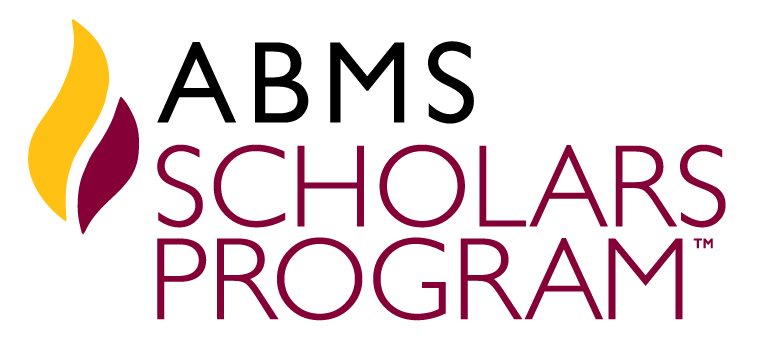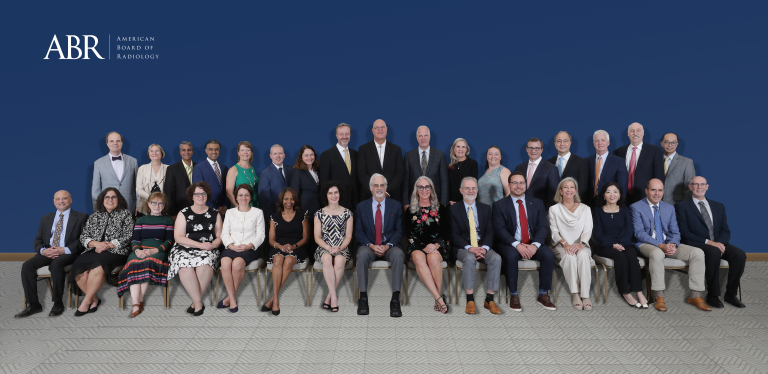ABR Volunteer Conflict of Interest Examples Provide Guidance
Professional societies are invaluable to the success of practitioners in medical physics, radiology, and radiation oncology. The ABR focuses on exams and other assessments of knowledge and skills in those disciplines, but we recognize that our volunteers are often engaged in research and educational activities outside of their institutions. To avoid a potential conflict of interest between teaching and creating exam content, some activities (for example, “board prep” courses) are considered incompatible with being an ABR volunteer.
To accommodate the preferences of our volunteers to a reasonable degree, we have drafted guidelines around what extramural teaching and educational activities would be allowed (and, conversely, what would be prohibited) for our volunteers without creating the appearance of an undue conflict of interest. The lists are not exhaustive but provide parameters to consider.
We value the generous contributions of our volunteers, and we respect their diverse interests in participating in the educational efforts of institutions and societies. We hope these examples allow for flexibility while maintaining a distinction between teaching and testing.
Allowed
Case review conferences or mock oral exams at your own institution.
Case review conferences or mock oral exams at another institution when given as an adjunct lecture during visiting professor activities, or in a multi-institution group setting.
Case review presentations outside your institution provided that the activity is noncommercial, and the participants are not charged a fee.
For DR and IR/DR, writing items for in-training formative learning exams such as ACR in-service (DXIT) and RADEXAM.
Workshops on how to teach for oral exam prep, for example, a session publicized as “teach the teachers” or “board prep for faculty” at national or regional meetings. There should be no sharing of specific ABR processes that you know because of your volunteer role (including how to conduct an oral exam as an examiner) and that are not included on the ABR website. The emphasis should be on case discussion technique, not specifically how to take an oral exam case. Best practice is to emphasize what would be a good response to a clinician colleague for each case, rather than scoring as for an ABR oral exam. The ABR provides training to oral examiners.
Reenactment of oral certifying exam scenarios to instruct faculty and candidates on how oral exams might be administered, based on public information on the ABR website.
Writing questions for other boards’ exams so long as the content has not been created for the ABR.
Not Allowed
Any commercial courses promoted as board or exam prep, whether sponsored by radiological societies, academic institutions, or private enterprises. This includes in-person or webinar-based events.
Plenary sessions or workshops at a society meeting (i.e., RSNA, ARRS, ASTRO, SIR, AAPM), where there is rapid-fire review of cases publicized as a “board prep” for trainees, including both case reviews or mock oral exams. This applies whether or not trainees pay to attend the society meeting.
National social media-based case reviews or mock exams hosted by a radiological society or organization and promoted as board or exam prep, whether or not trainees pay dues to the particular society or pay for the webinar.
Volunteers on a society’s board or exam prep committees cannot participate in ABR exam committees.
For MP and RO, writing questions for in-training formative learning exams such as ACR in-service (DXIT) and RADEXAM (or discipline equivalents) is not allowed, by preference of these disciplines.
Important Notes
ABR volunteers presenting case review conferences at their organization or any other venue are required to use this disclosure statement from the ABR Volunteer Agreement: “The following content is not ABR content and has never been submitted to the ABR (e.g., for use as testing material). My thoughts and opinions are my own. I am not here as a representative of the ABR, nor am I providing privileged, nonpublic information.”
Please note that while we value the contributions of our volunteers, violations of the COI could lead to removal from ABR volunteer roles and activities.
These restrictions are in place during your service as an ABR volunteer. If you have contributed to a real-time commercial exam prep activity whether or not there are enduring materials, you must wait one year from the last date of the activity to start volunteering. Finally, the confidentiality of ABR content, processes, and systems, and any other privileged, nonpublic information you gain from volunteering for the ABR should always be kept confidential even after your volunteer service concludes.






